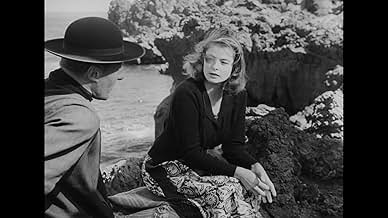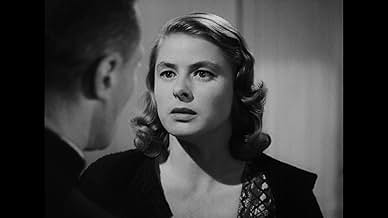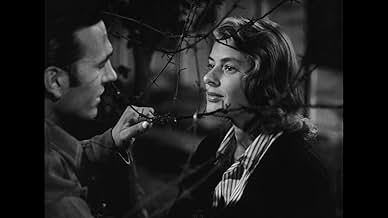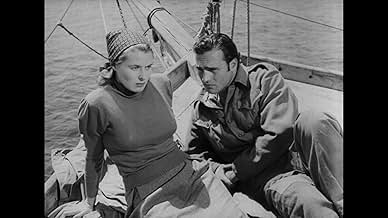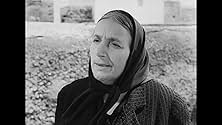Even in a displaced persons camp, Ingrid Bergman, as Karen, a Lithuanian refugee, manages to dress better and look more beautiful than everyone around her. After her petition for passage to Buenos Aires is denied, she marries a POW from the adjacent camp. A native of the Italian volcanic island Stromboli, Antonio - Mario Vitale - brings her to his home. The village is a harsh place carved from the cinders of the mountainside, and half-deserted. As soon as she sets foot on the island, she can see she's made a mistake, but instead of accepting what she bargained for, she pesters Antonio to make more money so they can leave. He doesn't want to go - this is his home, and he is content even with this fussy wife. The men are fishermen, she constantly hears crying children, and the women dislike her immodesty. She redecorates the house, hiding his shrine and old photographs, putting out vases and flowers, turning her floral dresses into bright curtains. But she disregards the social rules, befriending a seamstress who's a "fallen woman" and playing in the sea with a group of boys. The inevitable clash between the peasant fisherman and the woman with aesthetic aspirations their simple life cannot satisfy, comes to a head with the eruption of the volcano. If I rated only the plot, this movie would earn a 5 - but the cinematography is magnificent. Otello Martelli's use of light and shadow, camera angle, and the restless natural world he filmed, create images that last long after the story has blown away like the fluff it is.


